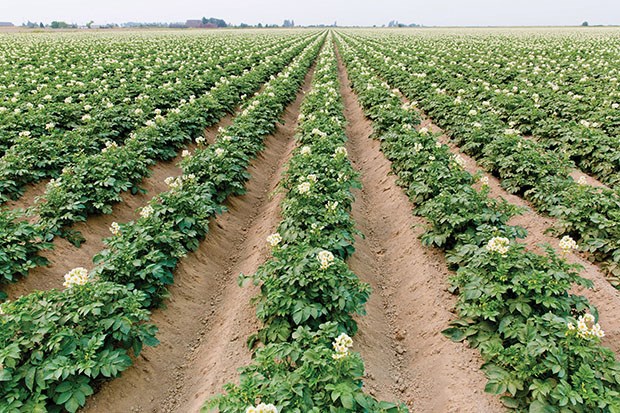Delta is one of the most important food producing areas in B.C., ranking highest in Agricultural Land Reserve farmland production amongst Metro Vancouver municipalities.
A considerable 76 per cent of the municipality’s ALR land is actively farmed, helping to sustain a strong local agricultural industry.
Did you know Delta produces over half of B.C.’s green beans and potatoes? Each year farmers grow a diverse set of crops, including blueberries, cabbage, greenhouse veggies, strawberries and more.
Delta farmers’ commitment to their craft is evidenced in the quality of their products, which are more accessible than ever thanks to a range of farm stands and weekend farmers’ markets operating in each of our communities, along with Westham Island and the variety of fresh produce, artisan wine/goods and berry-picking opportunities it has to offer.
With 90 per cent of farms in Delta family owned and operated, farming is a long-standing community tradition. However, there are no shortage of challenges threatening farmers and the viability of their trade. Delta is working with local farmers and organizations, including the Delta Agricultural Society, Delta Farmers’ Institute, provincial government and Delta’s agricultural advisory committee, to address these risks.
“Farming in British Columbia has changed over the last 30 years and challenges such as the globalization of food production, climate change and the scarcity of agricultural land remain primary barriers to the next generation of farmers in our community,” says Coun. Ian Paton, chair of Delta’s agricultural advisory committee and a local farmer.
“Delta has an incredibly diverse range of farmers who are dedicated to their craft and to working with us to develop solutions to improve the long-term sustainability of farming in our community.”
With shifts in seasonal rainfall making weather less predictable, climate change has emerged as a key issue affecting local farmers and their crops.
In 2012, Delta was fortunate to be one of three communities invited to participate in an agricultural climate change pilot project that involved the development of an adaptation strategy for long-term, sustainable farming.
Working in partnership with the Delta Farmers’ Institute and the provincial and federal governments, this project included the development of on-farm flood preparedness toolkits that were piloted at six Delta farms, assisting farmers in identifying ways to make their crops more resilient to flooding.
“Delta was fortunate to receive compensation from the B.C. government to undertake several agricultural enhancements as part of the construction of the South Fraser Perimeter Road,” says Mayor Lois Jackson.
“With the current water restrictions in place, we are thankful for these important drainage and irrigation improvements, which have enabled local farmers to access high quality water from the Fraser River.”
Currently in the implementation phase of this project, Delta is working with its partners to raise awareness of the origin of our food, challenges farmers face and the importance of local food production.



